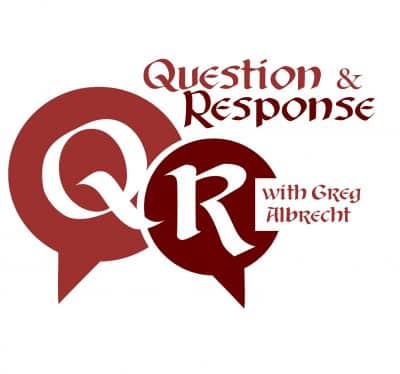The Accuser (or, “Holiness and Dread”) – Michael Frack
There is an idea currently extremely popular among the spiritual elite of my generation—an idea which is neither spiritual nor elite, but rather unspiritual and elitist. It is the carnal passion for mere dread of a “God” whose lust for physical suffering evokes this emotion of dread as, above all things, the only proper response to the deity’s intense hatred of the human race—or at least, of most of it. Those few whom he has chosen to save, he has only chosen to save because he cannot see them—he has thrown the Blood of Christ over them like a paper bag with holes punched out for breathing, but covering everything else. But if that paper bag were removed, and he were to see the real person underneath, he would be bound by his own holiness to destroy them immediately. All for his supreme pleasure.
Is this the God of the Bible? Is this the one who came “to give them life, and life to the full,” (John 10:10) “to bind up the brokenhearted, to proclaim freedom for the captives and release from darkness for the prisoners” (Isaiah 61:1)? It seems much more like the one who comes “only to steal, kill, and destroy,” and to set traps to watch men fall, then pounce on them for falling, levelling accusations against them for their utter incompetence before the holy standard, and stripping them of the dignity of even the choice of trying. Such a being takes delight in the despair of humanity, a glee and satisfaction in the idea of man’s utterly unsatisfactory condition. Such a being points his finger and cries, “Ecce Homo! Behold the Man! Behold him, so little above the worms as to be equal to them; nay, in his very inability yet duty to rise above them, as far beneath them as they beneath the heavens! Behold the man!” the being continues, “Nay, behold his filth, which covers him, and enters him, and nullifies whatever shred of a pretense to dignity he may have had, and turns his dying heart into nothing more than a sack of rotting flesh not fit even to feed the worms that swarm over him. Behold the man, Worm-Fodder, shame of the Universe, corrupter of all things. Curse him, and watch him die! No, curse him, and let him live forever, to taste for eternity the wretchedness of his condition, to savor without respite the filth and stench of his total subjugation to his own monstrosity! Send him to the everlasting fires of merciless ignominy, to Gehenna, as an everlasting leper, losing his rotting humanity piece by piece without ever tasting the sweet waters of annihilation and ceasing of torment; let his dwindling and tortured existence face the iron rigidity of mathematical infinity, and extend to perfection the exquisiteness of his suffering! Delight in his despair, for it is his own reaping, with nothing to alleviate his righteous destruction. Rejoice in his pain, for it is his reward. Exult in his torment, for it is the fulfilment and satisfaction of the perfect justice demanded of him.
“Behold the Man! Make him behold himself, forever in his shattered and eternal death!”
Thus says the being my generation worships. Thus says the Accuser.
But thank the Lord the God we serve actually loves us, and delights not in our despair, but in our deliverance! The one who came to heal us came to judge us as well—and his judgement is that we ought to be rescued from death. Any theology that denies this cannot be considered “Christian” in any sense. The fact that God loves us is perhaps the most significant foundation of any theology ever uttered, for everything else flows from this, even his judgements.
Apparently we need constant reminders of this fact, lest we, like Jonah, delight in the destruction of those we hate—including ourselves!—and find ourselves angry and disappointed that the God we claim to serve would show mercy where we demand sacrifice. We seek to judge in God’s seat when we are dissatisfied with his mercy, and play the accuser when we demand that others be made to feel our utter contempt for their being just like us: broken and afraid, unsure of God’s goodness and mercy.
But when we are unsure of God’s goodness and mercy (or redefine his “goodness” to mean our own unwavering hatred of ourselves, and his “mercy” to mean the destruction of those we hate), we are most at risk of putting ourselves above God and declaring that he desires our destruction, only refraining from blasting us because Jesus keeps him from seeing us.
Why do we feel the need to make his mercy unsure, and his hatred absolutely certain? Is it because death seems more certain than life? Is it because we find freedom terrifying, like an eagle afraid of heights? Or Is it because we believe it is a terrible thing to fall into the hands of a loving God—whose love burns hotter than hatred, and burns away the thing which kill us, yet which we cannot let go of? Is his hatred of us necessary, and his love for us only contingent? That I cannot believe.










 Plain Truth Ministries | Box 300 | Pasadena, CA 91129-0300
Plain Truth Ministries | Box 300 | Pasadena, CA 91129-0300

